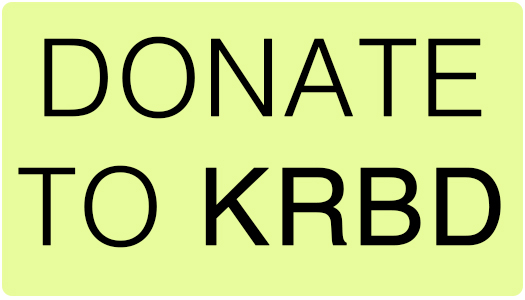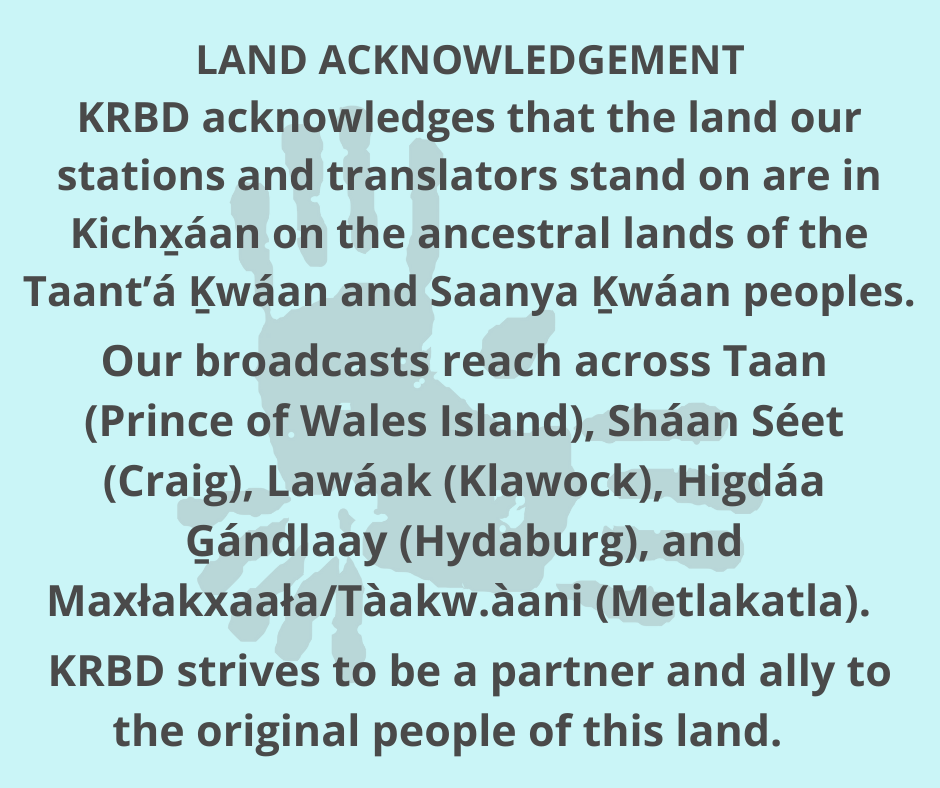Gov. Mike Dunleavy made his case in Ketchikan on Monday for the austere state budget he’s proposed for the coming fiscal year. He argued that major cuts to education, the Alaska Marine Highway System, senior services and more are necessary for the state’s long-term fiscal health.
Talking to a packed room at the Sunny Point Conference Center, Dunleavy compared prior budget-building processes to the movie “Groundhog Day,” in which the same thing happens over and over again.
“A budget is put out by the governor, and generally speaking the Legislature doesn’t agree with it,” he said. “There’s a fight, there’s publicity, there’s newspaper articles, there’s yelling and shouting.”
And, he said, that causes instability.
“What is Alaska going to do?” he said. “Is Alaska going to be able to get a budget that’s sustainable? Meaning year after year there’s some predictability? Or is Alaska going to go through Groundhog Day every single year? Just do this fight every year?”
Dunleavy said his proposed budget, and his three proposed constitutional amendments, would change that pattern.
Those amendments call for voter approval on any changes to Permanent Fund Dividend distribution; voter approval of any new taxes; and a stricter appropriations limit. Those amendments would need to go in front of voters for ratification.
Dunleavy adds that the state wouldn’t be in this situation if the Legislature had approved a multi-year, step-down plan he proposed when he was a state senator.
“Although the Senate accepted that, in the end the Legislature as a whole did not accept that and what we did was just pass another budget in which we spent more money,” he said.
Over the past few years, the state has used about $14 billion in savings to cover the deficit. This fiscal year, the state also used some Permanent Fund earnings.
The majority of state revenue comes from the oil industry. Prices dropped in 2015, creating the deficit.
Dunleavy’s proposed budget cuts about $1.6 billion from current spending. He has vowed to not use Permanent Fund earnings to pay for government. He also has rejected the idea of state taxes. He said taxes would need to be too high for Alaskans to cover the deficit.
“For every man, woman and child, from the second they’re born to the second they die, it’s about $2,200 per person,” he said.
That number is the current deficit divided by the state’s population of about 730,000. It does not factor in seasonal or temporary workers.
Matt Hamilton asked Dunleavy what the plan is after all the cuts. How will the governor work to build the state back up?
Dunleavy said building energy infrastructure is the key to attracting industry and jobs.
“As dogged as I am on the fiscals, I’m going to be as dogged to make sure Alaska gets the cheapest possible electrical costs to individual Alaskans that we can possibly do,” he said. “And we’re working through some ideas now.”
Dunleavy suggested a natural gas line and more hydroelectricity, specifically.
Another audience member asked how cuts to education will lead to better outcomes. She specifically referenced his cuts to early education programs.
Dunleavy said those cuts are painful to him, because he’s a former educator. But “more money does not absolutely correlate to improved outcomes,” he said. “It’s how one approaches the system. And that’s what I think we need to talk about. It is just any pre-k? Or are they research-based programs that if they’re implemented with fidelity will give the absolute results we know they can? That’s a different discussion that just saying we fund pre-k.”
Joey Tillson asked Dunleavy about job losses and the resulting drop in state population following his budget cuts. She added that many low-income seniors depend on state aid to make it through the month, and his budget removes that aid.
Dunleavy said people already are leaving the state, and will continue to do so until spending is reigned in.
Regarding seniors, he said they’ll get a bigger Permanent Fund Dividend through his fiscal plan.
Ketchikan Rep. Dan Ortiz was in the audience, and said while the governor wasn’t proposing new taxes, he is proposing cost-shifts to local governments. Ortiz said local governments then will have to raise taxes, so the public will end up paying more one way or another.
Dunleavy said reductions in state revenue sharing are something local governments will have to consider.
“No, we’re not proposing taxes at the state level,” he said. “Will local municipalities have to ponder additional taxes? Yes, they will.”
Dunleavy told the audience that he’s not out to hurt Alaska. He said he is willing to listen, and will work with the Legislature to come up with a budget that makes sense for the state.
The question-and-answer session at the Chamber of Commerce lunch went longer than expected. A scheduled time for local media to interview the governor was canceled.
Below is the audio from the entire 90-minute Chamber event.








